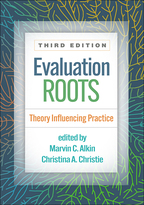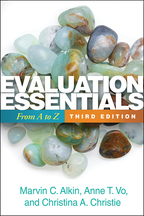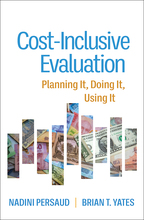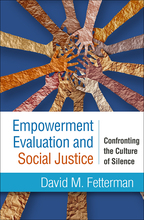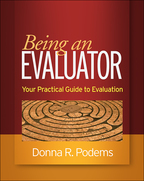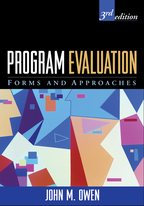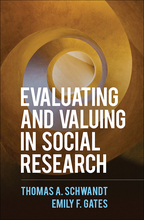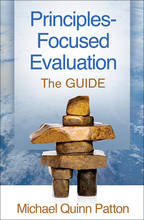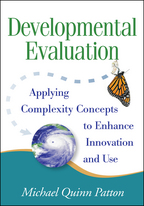Evaluation Roots
Third Edition
Theory Influencing Practice
Edited by Marvin C. Alkin and Christina A. Christie
HardcoverPaperbacke-bookprint + e-book
Hardcover
orderFebruary 28, 2023
ISBN 9781462551408
Price: $86.00 318 Pages
Size: 7" x 10"
Paperback
orderFebruary 14, 2023
ISBN 9781462551392
Price: $57.00318 Pages
Size: 7" x 10"
e-book
orderJanuary 27, 2023
PDF and Accessible ePub ?
Price: $57.00 318 Pages
ePub is Global Certified Accessible
print + e-book $114.00 $68.40
orderPaperback + e-Book (PDF and Accessible ePub) ?
Price: 318 Pages
ePub is Global Certified Accessible
“The third edition of Evaluation Roots is transformative, and one of the best resources available for understanding the variety of approaches for conducting contemporary evaluations. The revised evaluation theory tree, which categorizes approaches instead of theorists, is a vast improvement, alongside newer approaches and developments such as culturally responsive evaluation and culturally responsive Indigenous evaluation. This book is a 'must read' for evaluation practitioners and students across the globe. I will use it as a text in my evaluation theory graduate courses.”

—Stewart I. Donaldson, PhD, Distinguished University Professor, Claremont Graduate University
“A fantastic resource for beginning and experienced evaluators alike. The book's organization and the final chapter on theory prototypes allow readers to easily see and compare each theory's defining features and applications. This gives readers a menu of options to determine what theory is best for a given project. For the beginner, the book provides an excellent introduction to the wide world of evaluation, and the many ways one can approach and carry it out. Experienced evaluators are invited to revisit how and why they do evaluations, whether they are implementing the theories they think they are, and whether a given approach is right for a particular context.”

—Jessica Shaw, PhD, Department of Psychology, University of Illinois at Chicago
“In its third edition, this book remains one of the best introductions to the field of evaluation and its myriad approaches, practices, and purposes. I plan to use the book in my graduate courses, and will also incorporate its evaluation framework into my workshops, since it offers the right balance of depth and breadth needed to help train the next generation of evaluation practitioners and scholars. The authors succeed wonderfully in showing the importance of evaluation theories for empowering participants, understanding policy and program impacts, highlighting stakeholder values, and helping to ensure that evaluations are useful.”

—Tarek Azzam, PhD, Department of Education, University of California, Santa Barbara
“This book does a great job of demonstrating the complexity of the evaluation field from both theoretical and practical standpoints. The theory tree helps students grasp the foundations of each theory and travel along the 'branches' of method, use, and valuing to see the relationships between various approaches. Sharing the perspectives of expert practitioners, the third edition is an important tool for learning and reference. It is a valuable addition to graduate-level Program Evaluation courses across multiple disciplines.”

—Kim Cook, EdD, MBA, Department of Management and Leadership, Neeley School of Business, Texas Christian University
—Stewart I. Donaldson, PhD, Distinguished University Professor, Claremont Graduate University
“A fantastic resource for beginning and experienced evaluators alike. The book's organization and the final chapter on theory prototypes allow readers to easily see and compare each theory's defining features and applications. This gives readers a menu of options to determine what theory is best for a given project. For the beginner, the book provides an excellent introduction to the wide world of evaluation, and the many ways one can approach and carry it out. Experienced evaluators are invited to revisit how and why they do evaluations, whether they are implementing the theories they think they are, and whether a given approach is right for a particular context.”
—Jessica Shaw, PhD, Department of Psychology, University of Illinois at Chicago
“In its third edition, this book remains one of the best introductions to the field of evaluation and its myriad approaches, practices, and purposes. I plan to use the book in my graduate courses, and will also incorporate its evaluation framework into my workshops, since it offers the right balance of depth and breadth needed to help train the next generation of evaluation practitioners and scholars. The authors succeed wonderfully in showing the importance of evaluation theories for empowering participants, understanding policy and program impacts, highlighting stakeholder values, and helping to ensure that evaluations are useful.”
—Tarek Azzam, PhD, Department of Education, University of California, Santa Barbara
“This book does a great job of demonstrating the complexity of the evaluation field from both theoretical and practical standpoints. The theory tree helps students grasp the foundations of each theory and travel along the 'branches' of method, use, and valuing to see the relationships between various approaches. Sharing the perspectives of expert practitioners, the third edition is an important tool for learning and reference. It is a valuable addition to graduate-level Program Evaluation courses across multiple disciplines.”
—Kim Cook, EdD, MBA, Department of Management and Leadership, Neeley School of Business, Texas Christian University

